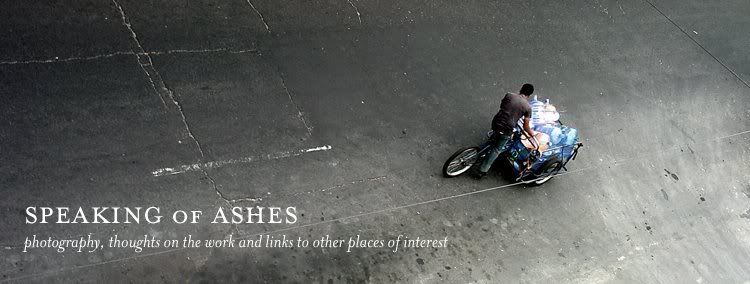Fischl at Pennsylvania
I want to emphasize the difference between Fischl's speech summarized in the post linked below with some of the other kinds of statements we're hearing from artists these days.
Fischl was speaking of shared obligation and accountability, not a retreat into isolation and individualism, he challenged the entire artistic community to find its voice and react appropriately to the storms now threatening humanity - and that is the vision to which this web log is wholly dedicated.This one is too, by the way. Mark Vallen's excellent post captures some of the impetus that a lot of us are working for. Fischl's job is political and defiant and he doesn't cower before an ignorant marketplace shaking his head saying "I have no control over it. I don't even know why I am so successful."
 See my previous post on manifesto-ing. Artists who aren't relying on "cool" understand that painting and language are formative processes and we have to fight like hell for the form we want, not blandly accept some marketing nonsense. We make the public, we don't rely on marketers to do it for us.
See my previous post on manifesto-ing. Artists who aren't relying on "cool" understand that painting and language are formative processes and we have to fight like hell for the form we want, not blandly accept some marketing nonsense. We make the public, we don't rely on marketers to do it for us.Don't know why it is so difficult to put into words, but I remember full-well comprehending that the end of modernism meant that visual art was again a part of language. It was no longer the anti-language that late, high, education-crushing abstraction had hoped it to be.
When one is first beginning, of course, one must struggle with styles and messages about the meta-knowledge, the "meaning" of art itself. Other strains, beyond the main philosophical strains of European art come to us from history - social, political, even commercial meanings. But it is a poor reading of history to say that each of us must create a unique (pre-Wittgenstenian) language and then hope the dealers can sell it, independent of any commonality with the people actually looking at it. People will look back from our time and our cowardice before marketers as we look back on any ideology continually declaring its infallibilty in the very face of its failures. In this case it is simply the radical subjectivity of the experience of art being shaken in the face of a beleagured "public." But our public is our public again. We don't rely on the Times or ArtForum to establish things for us. We know who they work for.
And let me just say, I never "liked" Fischl's painting all that much. But then, I no longer see what "liking things" has to do with art. Seeing is not dependent on our taste, but on our ability. And so I like Fischl's vision which is generous rather than beleagured. Certainly that is worthy.
ERIC FISCHL Bathroom Scene#5 (not yet titled (he enters)), 2005, Oil on linen


In this case it is simply the radical subjectivity of the experience of art being shaken in the face of a beleagured "public." But our public is our public again. We don't rely on the Times or ArtForum to establish things for us. We know who they work for.
ReplyDeleteBrilliant, James. I'd like to think this is true, that our public is our public again. The splintering of authority in art should have that effect, shouldn't it? Even if it requires some assertions on our part, which I think we all are glad to render.
I never thought much of Fischl's work either. But I really like what he's verbalizing, and that he's very straight-up about not knowing why he's successful. That's a real human being for you.
thanks Bill- Actually by public, I really meant the blogosphere.
ReplyDeleteAm actually still thinking of Bitch's amazing speech a few day's ago, I will post some thing on that later this weekend.